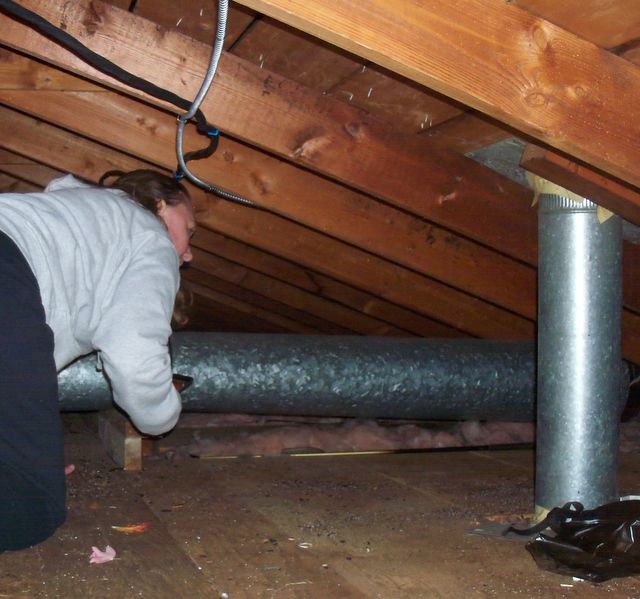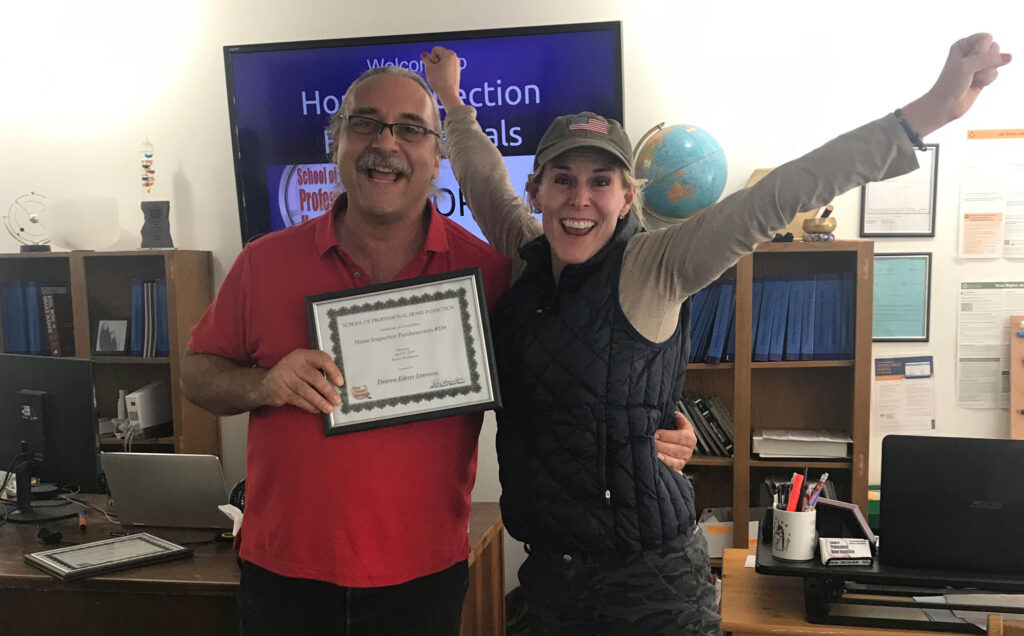Start your home inspection career in Missouri!
At the School of Professional Home Inspection, our Fundamentals of Home Inspection course gives you the skills and confidence to succeed. Join us in person or live on Zoom for two weeks of real-time, engaging instruction from experienced pros.
Tuition for Missouri certification:
– Includes all course materials and professional training to begin inspecting homes in Missouri
Save $52 when you pay with cash, check, or eCheck instead of a credit card.
Cash Price: $1,495
Credit Card Price: $1,547
Missouri doesn’t license home inspectors, but buyers want pros they can trust. Get trained, pass the NHIE, and stand out. E&O and liability insurance aren’t required—but smart inspectors carry them.
Take the Home Inspection Aptitude test and see sample questions like those you should expect on the national NHIE Inspection exam.
You’ll cover everything from business ethics and client communication to the technical details of plumbing, electrical, roofing, and more. By the end, you’ll be ready to stand out in this rewarding field.
What is the Home Inspector Salary in Missouri?The average salary for a home inspector in Missouri is over $50,000, with many making over $70,000.
(as of 08/07/24 at ZipRecruiter)

Is there any financing available?
What is the class schedule?
Classes are conducted from 9:30 a.m. to 6:30 p.m. (Central Time), Monday through Saturday, with a break on Sunday, followed by another Monday through Saturday session. Upon completion of these two weeks, the course is concluded.
The SOPHI curriculum offers comprehensive training in home inspection. Our intensive 12-day program is meticulously designed to provide a robust foundation and ensure you are well-equipped for success in this field.
What are the opportunities for a licensed home inspector?
While many inspectors work independently, opportunities also exist with multi-inspector firms and franchises. It is crucial to carefully review any employment offer from another company. We recommend consulting an attorney to examine the offer before making a decision.
HUD
U.S. Department of Housing and Urban Development has several kinds of inspections. See the link.
Sewer Scopes
Operating a sewer inspection business in conjunction with home inspections can be highly lucrative. It’s an easy sell—I frequently remind my clients that their sewer system is “the most expensive hidden component of their home.”
Energy Audit
An energy audit entails the systematic evaluation and analysis of a building’s energy consumption to improve overall efficiency. This process may involve implementing strategies or modifications designed to reduce energy use while maintaining performance standards.
For homeowners, an energy audit provides a detailed assessment of their home’s energy utilization and distribution. This evaluation identifies areas of energy waste and highlights opportunities for reducing consumption, thereby offering potential cost savings.
What tools do I need?
The minimum tools you will need include:
- high-quality respirators
- good flashlight
- camera
- moisture meter
- outlet tester
- minimal hand tools (screwdrivers, nut drivers, etc.)
- ladder
- safety gear, (eye protection, gloves, shin guards, jumpsuit)
- computer/software
- vehicle (think gas mileage)
During a particularly busy month, I spent $750 solely on fuel while using my original gas-hog van for inspections. However, when I switched to a more fuel-efficient vehicle and doubled my gas mileage, the savings covered the cost of the newer van. Consider the benefits of an efficient vehicle.
Other nice to have tools include:
- thermal camera (I like the FLIR line of cameras)
- drone
- electrical multimeter (you can’t go wrong with an entry-level Fluke meter)





